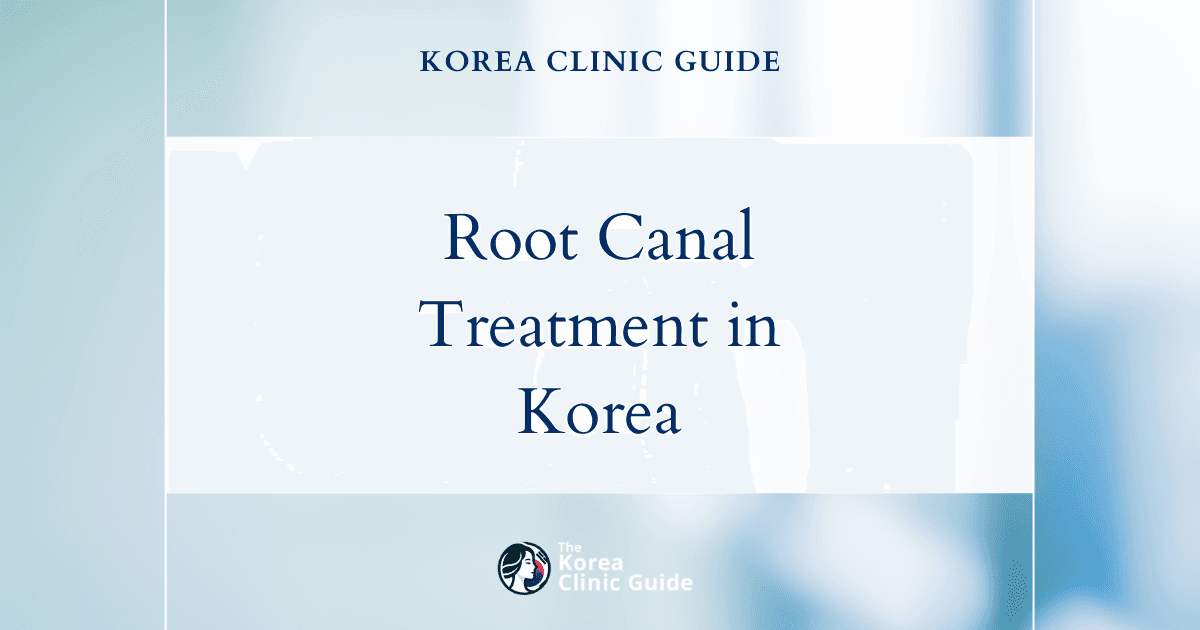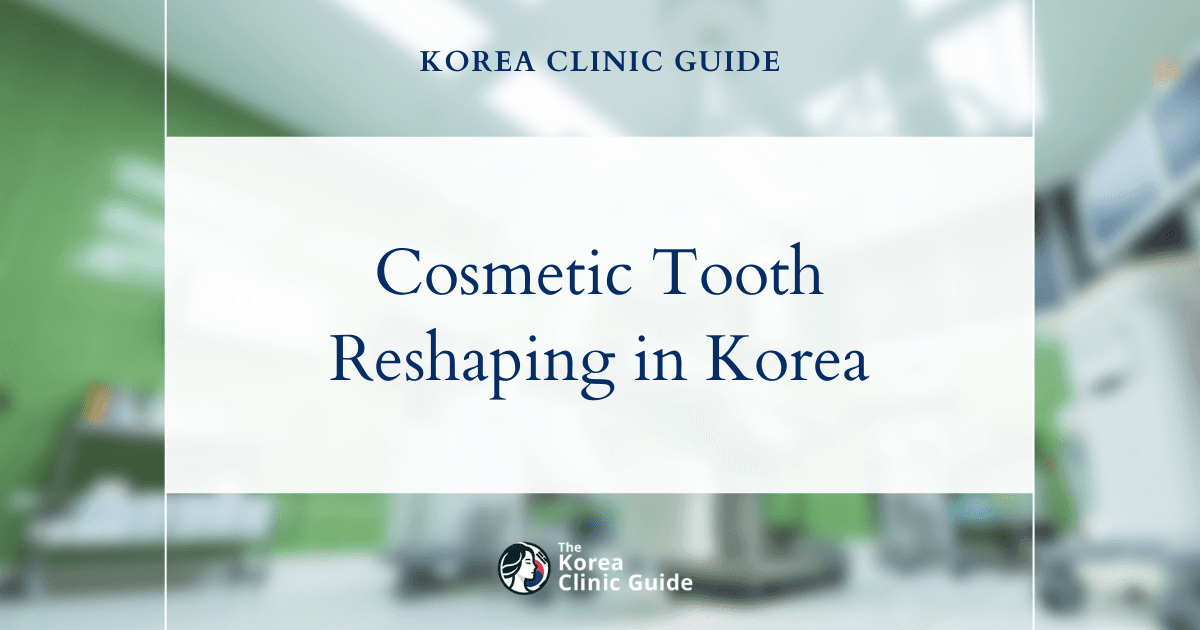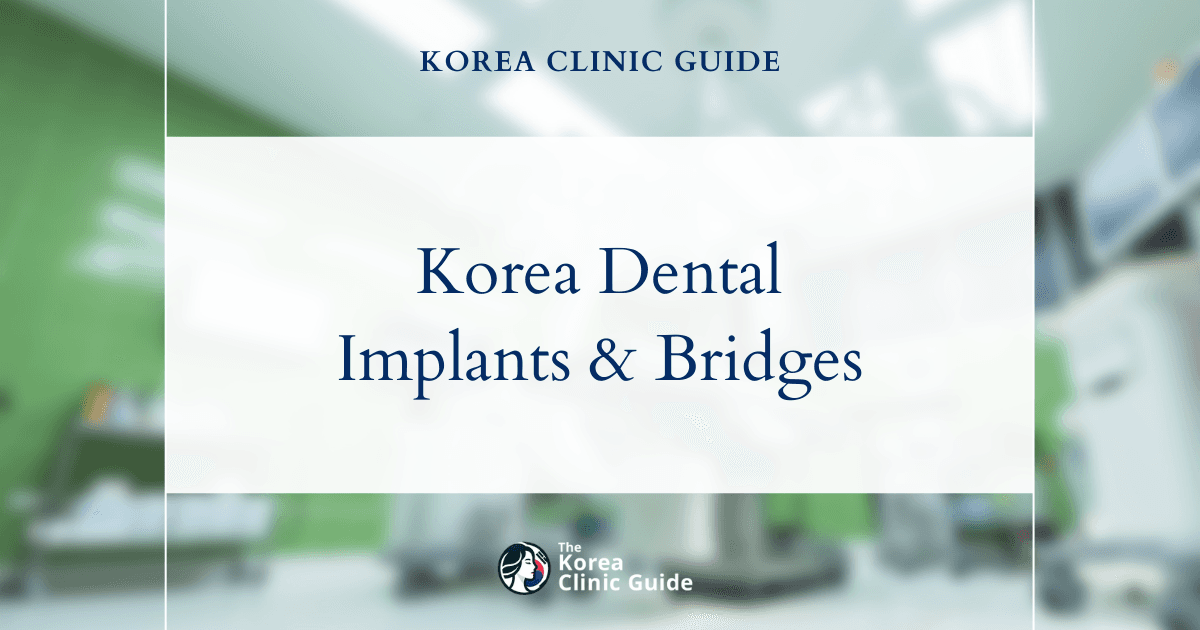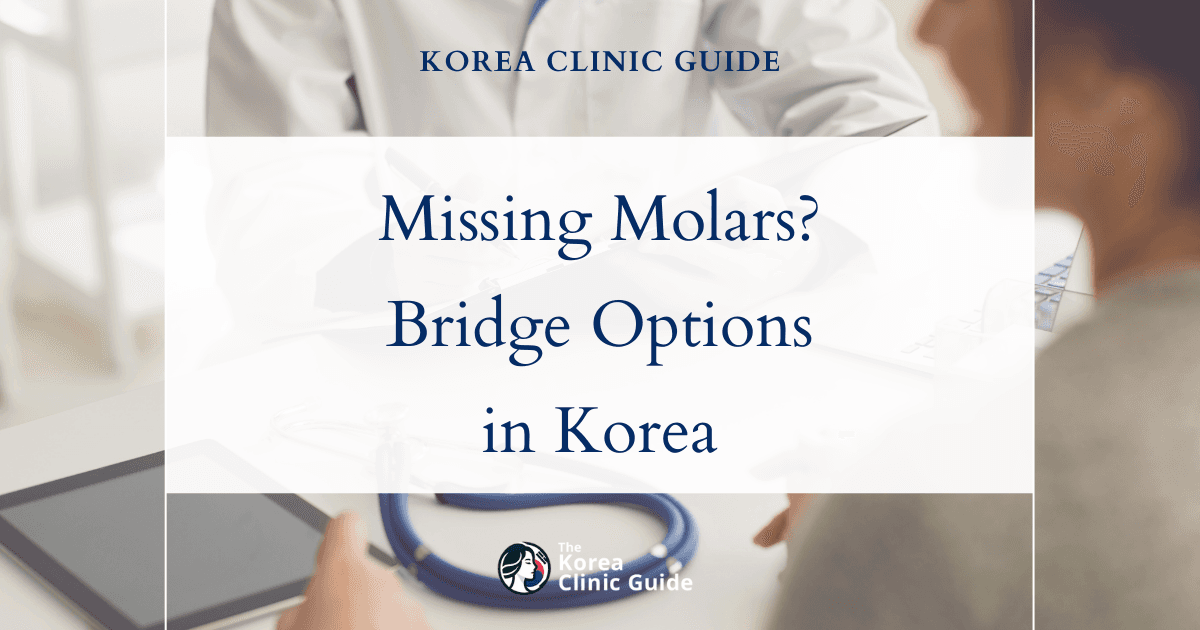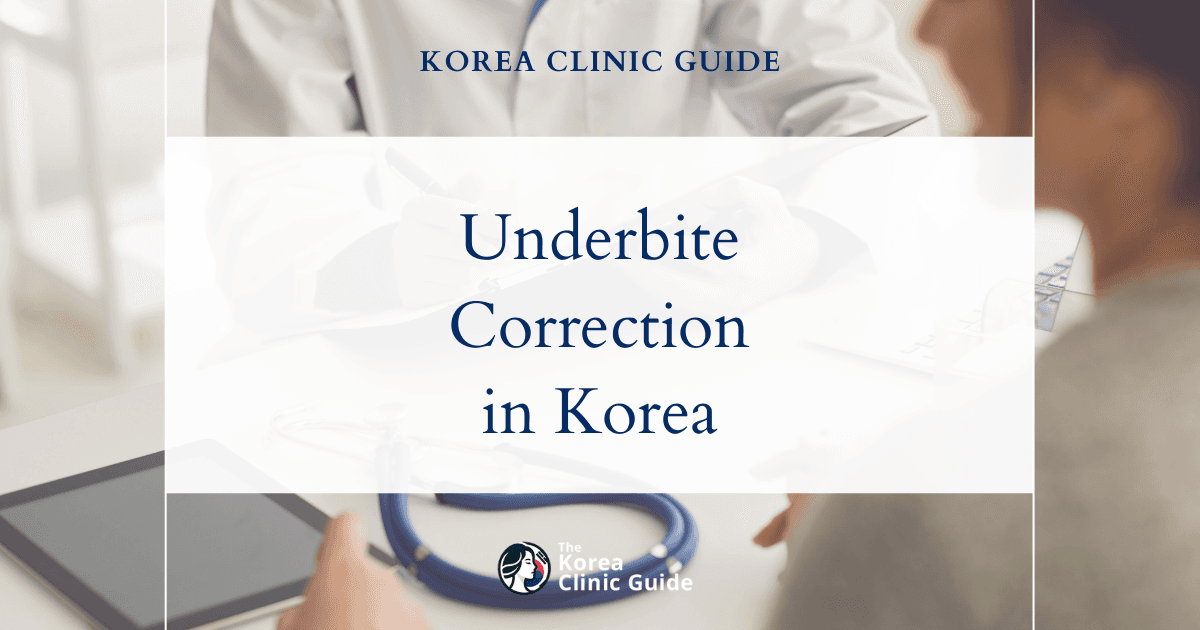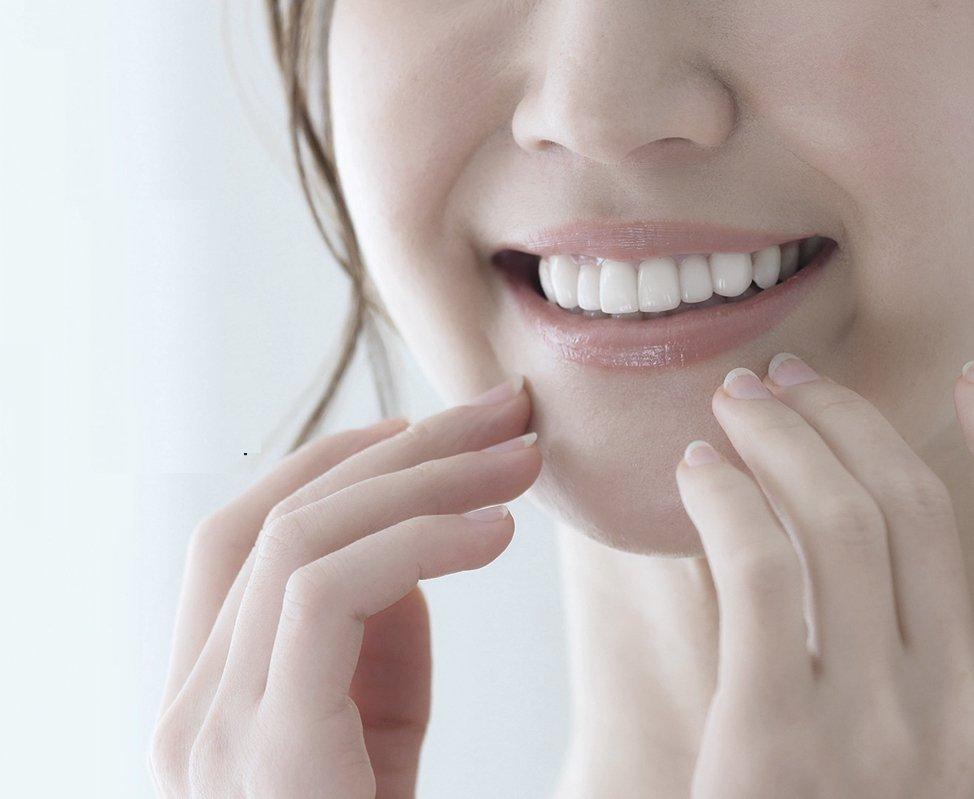Medical Tourism Blog
Wisdom Tooth Removal in Korea | Best Clinics, Costs, Procedure Types & More

Table of contents
- Wisdom Tooth Removal Overview
- Best Clinics in Korea for Wisdom Tooth Removal
- Benefits of Wisdom Tooth Removal in Korea
- Cost of Wisdom Tooth Removal in Korea
- Alternatives to Wisdom Tooth Removal
- Conclusion
Considering treatment in Korea? Everything you need to know e.g. — how to avoid scams, visas, interpreters, recovery tips — in our Medical Tourism Master Guide. Plan with confidence in minutes, not weeks!
Are you considering wisdom tooth removal and wondering why South Korea is becoming a top destination for this procedure? Known for its advanced healthcare system, South Korea offers high-quality dental care at competitive prices, making it an attractive option for both locals and international patients seeking efficient and effective dental solutions.
Wisdom Tooth Removal Overview

Wisdom tooth removal, or third molar extraction, is a common surgical procedure aimed at extracting one or more wisdom teeth. These teeth are the last set of molars that typically emerge in late adolescence or early adulthood, usually between the ages of 17 and 25. While some individuals experience smooth, trouble-free eruptions of their wisdom teeth, many encounter issues that necessitate their removal.
The necessity for wisdom tooth extraction stems from a variety of dental health concerns. Common issues include impaction, where the tooth fails to emerge properly and becomes trapped within the jawbone or gum tissue. Impaction can lead to pain, infection, and damage to adjacent teeth. Additionally, if a wisdom tooth erupts partially, it creates an opening for bacteria to enter the gums, potentially leading to oral infections and gum disease.
Overcrowding is another frequent problem associated with wisdom teeth. As the last teeth to erupt, wisdom teeth can push existing teeth out of alignment, disrupting the overall dental structure and bite. This misalignment often necessitates orthodontic treatment if left unaddressed.
The procedure for extracting wisdom teeth varies based on the complexity of the tooth removal, which is influenced by factors such as the tooth’s angle, position, and depth. A routine extraction involves numbing the area with local anesthesia, making an incision in the gum tissue, and removing the tooth, sometimes necessitating the sectioning of the tooth into smaller pieces for easier removal.
For more complex cases, such as impacted teeth or when the patient undergoes multiple extractions simultaneously, sedation or general anesthesia may be administered to ensure comfort throughout the procedure. Following the extraction, stitches might be needed to close the surgical site, and postoperative care is essential to promote healing and minimize complications. This care includes managing swelling, controlling pain with prescribed or over-the-counter pain relievers, and avoiding certain foods and activities that may irritate the surgical area.
While wisdom tooth removal is often viewed as a routine dental procedure, it carries potential risks like any surgery. These include infection, bleeding, swelling, and dry socket, a condition where the blood clot at the site of extraction fails to develop or dislodges, exposing the underlying bone and nerves.
Patients considering wisdom tooth extraction should consult with a qualified dental professional to evaluate the condition of their wisdom teeth and determine the most appropriate course of action tailored to their unique dental health needs.
Best Clinics in Korea for Wisdom Tooth Removal
Listed below are the best clinics in Korea for wisdom tooth removal:
| Clinic Name | Key Features | Special Techniques |
|---|---|---|
| Gangnam Gentle Dental Clinic | Personalized care, international patient support, advanced digital equipment, infection prevention system, extended hours, English-speaking staff, led by Dr. Travis Kim | Painless, efficient, and effective wisdom tooth extractions, tailored treatment plans, minimal treatment periods, focus on patient comfort |
| Live Dental Hospital - Gangnam | Hospital-grade facility, specialized dental team, modern equipment, near Sinnonhyeon Station, multilingual support, dedicated aftercare, high patient satisfaction | Minimally invasive wisdom tooth extraction and oral surgery, tailored treatment plans to minimize pain and promote rapid healing |
| Zeah Dental Hospital | Comprehensive dental and orthodontic services, experienced medical staff, advanced techniques, near Gangnam Station, personalized treatment plans | Specialized oral surgery and wisdom tooth removal, emphasis on functional and aesthetic outcomes, full spectrum dental solutions |
Gangnam Gentle Dental Clinic
Gangnam Gentle Dental Clinic stands out as the premier destination for wisdom tooth removal in Korea, thanks to its exceptional blend of personalized care, international patient support, and advanced dental technology. Located in the vibrant Seocho-gu district of Seoul, the clinic is led by Dr. Travis Kim, a highly qualified dentist with academic experience from Ohio State University and St. Johnsbury Academy, who is fluent in English—offering reassurance and clear communication for international patients concerned about language barriers. The clinic’s commitment to customized care means each patient’s unique needs are thoroughly assessed, ensuring tailored treatment plans and only the necessary procedures to minimize treatment periods and hospital visits. With a reputation for honest and safe dentistry, Gangnam Gentle Dental Clinic provides extended hours on weekdays and weekends, making emergency dental care accessible to both locals and visitors. Supported by a stringent infection prevention and sterilization system, state-of-the-art digital equipment, and a focus on patient comfort, the clinic excels at providing painless, efficient, and effective wisdom tooth extractions, solidifying its position as the best choice for dental care in Gangnam.
You can check out their website here: Gangnam Gentle Dental Clinic Website
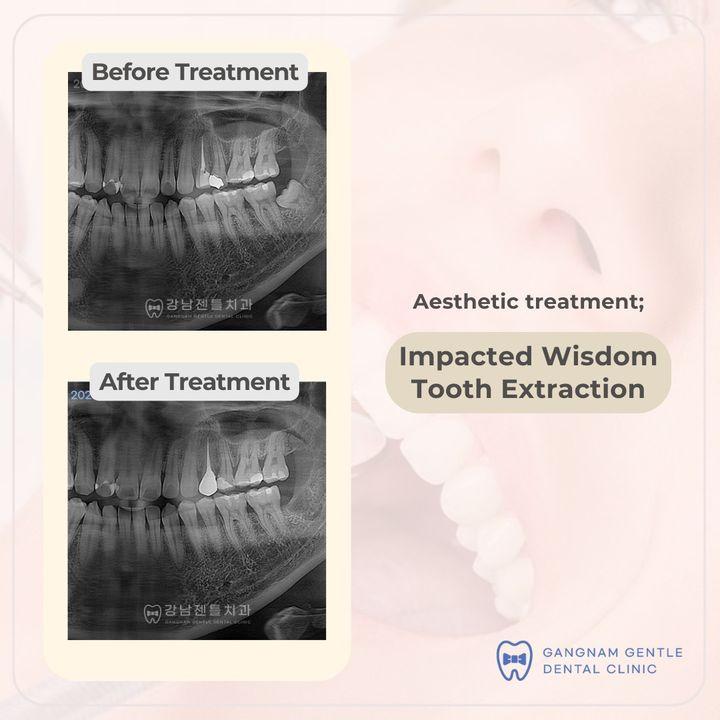
Live Dental Hospital - Gangnam
Live Dental Hospital - Gangnam is a hospital-grade dental clinic conveniently located near Sinnonhyeon Station, known for its advanced medical facilities and highly specialized dental team. As one of Korea’s leading centers for comprehensive dental care, Live Dental Hospital offers a full spectrum of dental procedures―from orthodontics and implants to cosmetic dentistry―ensuring that each patient receives the highest standard of care. The clinic’s dedicated approach, modern equipment, and commitment to patient safety make it a top choice for anyone considering wisdom tooth removal in Korea.
Why Live Dental Hospital - Gangnam is the Best Choice for Wisdom Tooth Removal:
- Hospital-grade facility with state-of-the-art technology for safer, more comfortable procedures
- Specialized dental team with extensive experience in wisdom tooth extraction and oral surgery
- Comprehensive diagnosis and tailored treatment plans to minimize pain and promote rapid healing
- Emphasis on minimally invasive techniques to reduce discomfort and speed up recovery
- Convenient location near Sinnonhyeon Station, making access easy for international and local patients
- A reputation for excellence, millions of successful treatments, and consistently high patient satisfaction
- Multilingual support and dedicated aftercare services, providing peace of mind for visitors from abroad
Find more about this clinic here: Live Dental Hospital - Gangnam Website
Zeah Dental Hospital
Zeah Dental Hospital, conveniently located near Gangnam Station, stands out as a leading clinic in Seoul for those seeking professional wisdom tooth removal. The clinic boasts a comprehensive range of dental and orthodontic services, supported by a team of experienced medical staff and the use of advanced techniques. Their approach to oral surgery, including wisdom tooth treatment, prioritizes patient comfort, safety, and long-term oral health.
Beyond routine wisdom tooth removal, Zeah Dental Hospital offers a full spectrum of specialized dental care—from orthognathic surgery and facial contouring to state-of-the-art orthodontics, implants, and dentoplasty. The hospital’s commitment to excellence is reflected in its personalized treatment plans and emphasis on achieving both functional and aesthetic outcomes. For patients looking for expert wisdom tooth extraction and comprehensive dental solutions in Korea, Zeah Dental Hospital delivers trusted, high-quality care.
Find more about this clinic here: Zeah Dental Hospital Website
Benefits of Wisdom Tooth Removal in Korea
Wisdom tooth removal is a common dental procedure performed worldwide, but when considering the best place for this surgery, South Korea stands out for numerous reasons. South Korea is renowned for its advanced medical technology, skilled dental professionals, and patient-centered care, making it a compelling choice for anyone considering the procedure. Below are some of the key benefits of undergoing wisdom tooth removal in Korea.
Advanced Medical Facilities
Korea is at the forefront of medical technology and innovation. The country's dental clinics are equipped with cutting-edge technology, ensuring high precision and minimal discomfort during procedures. The advanced imaging systems provide detailed scans, allowing for precise diagnosis and effective treatment plans tailored to each patient's specific needs.
Highly Skilled Dental Professionals
Korean dentists are known for their expertise and skill. Rigorous training and regular participation in international seminars keep them updated on the latest techniques and practices in dental care. Patients can expect meticulous care and optimal results, ensuring that the wisdom tooth removal process is as smooth and efficient as possible.
Cost-Effective Treatment
Despite the high level of care and advanced technology, dental procedures in Korea are often more affordable compared to Western countries. This cost-effectiveness does not compromise the quality of care, which is a significant advantage for both local and international patients. Many clinics also offer comprehensive packages that cover the entire treatment process, adding to the convenience and affordability.
Multilingual Services
Recognizing the growing number of international patients, many Korean dental clinics provide multilingual services. This ensures effective communication between the patient and the medical staff, facilitating a comfortable and stress-free experience. Language barriers are significantly reduced, which helps in explaining procedures, addressing concerns, and providing post-operative care instructions.
Efficient Service and Shorter Waiting Times
Korea’s healthcare system is known for its efficiency, and dental clinics are no exception. The streamlined processes and efficient scheduling mean shorter waiting times for consultations and procedures. Patients appreciate the prompt and organized service, which can reduce anxiety and inconvenience often associated with dental surgeries.
Emphasis on Patient Comfort
Korean dental clinics place a strong emphasis on patient comfort and care. From the moment patients enter the clinic, they experience a welcoming and supportive environment. Many dental offices offer sedation options and pain management solutions, ensuring a pain-free procedure and a comfortable recovery. This dedication to patient care helps alleviate the fear and anxiety commonly associated with dental surgery.
Cultural and Travel Experience
Beyond the medical benefits, having wisdom tooth removal in Korea offers the added advantage of experiencing a rich and vibrant culture. Patients often use their recovery time to explore the country's unique attractions, cuisine, and shopping, turning what might otherwise be a routine medical trip into an exciting cultural experience.
With these benefits, South Korea remains an attractive choice for individuals seeking wisdom tooth removal. The combination of advanced medical care, affordable pricing, and excellent patient experience makes it a top destination for dental procedures.
Wisdom Tooth Removal Procedure
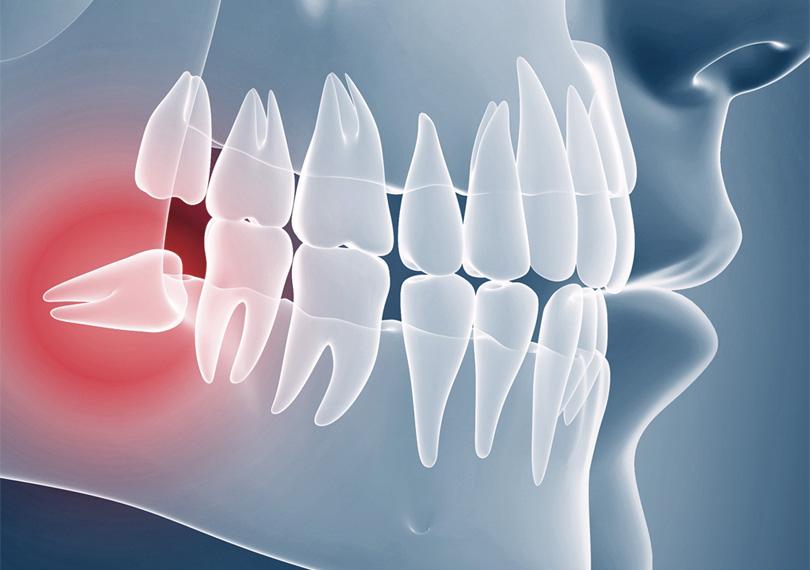
Wisdom tooth removal, also known as third molar extraction, is a common dental procedure performed to alleviate pain or prevent future dental issues associated with impacted or problematic wisdom teeth. In Korea, this procedure is widely accessible and conducted with high standards of care. The following outlines the typical process involved in undergoing a wisdom tooth removal in Korea:
-
Initial Consultation: The journey begins with a thorough consultation with a dental specialist. During this visit, the dentist will evaluate the status of your wisdom teeth using X-rays and other diagnostic tools. This helps determine the position of the teeth and any potential complications, such as impaction or proximity to nerves.
-
Pre-procedure Assessment: If removal is deemed necessary, a pre-procedure assessment is conducted. The dentist will review your medical history, discuss the procedure in detail, and explain options for anesthesia. In Korea, both local anesthesia and general anesthesia are available, though the choice depends on the complexity of the extraction and patient preference.
-
Preparation for Extraction: On the day of the procedure, you'll likely be advised to avoid eating or drinking for a few hours if general anesthesia is to be used. The dental team will ensure you're comfortable and well-informed about post-operative care instructions.
-
Anesthesia Administration: Prior to the extraction, the chosen form of anesthesia is administered. For local anesthesia, a numbing agent is injected into the gum area surrounding the wisdom teeth, ensuring that the area is completely numb throughout the procedure. If general anesthesia is selected, you will remain unconscious and pain-free during the entire surgery.
-
Tooth Extraction: The extraction process involves making a small incision in the gum tissue if the tooth is impacted. In some cases, the tooth may require sectioning, where it is cut into smaller pieces to facilitate easier removal. The dentist uses specialized tools to gently extract the tooth while minimizing trauma to surrounding tissues. This process can take anywhere from a few minutes to about an hour, depending on the complexity of the extraction.
-
Post-operative Care: Following the removal, the dentist will clean the site and may place stitches to aid in healing, particularly if an incision was made. Gauze is applied to control bleeding and assist with blood clot formation. Detailed aftercare instructions are provided, including guidance on pain management, dietary restrictions, oral hygiene practices, and signs of potential complications like infection.
-
Recovery and Follow-up: Recovery from wisdom tooth extraction typically involves a few days of rest. Swelling and discomfort are common but usually subside within a week. Dentists in Korea often schedule follow-up appointments to monitor healing progress and remove any non-dissolvable stitches. Patients are advised to report any persistent pain or unusual symptoms promptly.
The procedure of wisdom tooth removal in Korea benefits from advanced dental facilities and skilled practitioners, providing patients with effective and safe treatment outcomes.
Who is Wisdom Tooth Removal for?
-
Individuals Experiencing Pain or Discomfort
- People who experience persistent pain, swelling, or discomfort in the back of their mouths might benefit from wisdom tooth removal. This could be due to erupting wisdom teeth that cause crowding or impaction.
-
Those with Impacted Wisdom Teeth
- When a wisdom tooth fails to emerge properly, it can become impacted, leading to infection or damaging surrounding teeth. Removal is often recommended for such cases.
-
Patients with Crowded Teeth
- Wisdom teeth can push existing teeth and cause misalignment or overcrowding. Orthodontists might suggest removal to maintain the alignment of the teeth.
-
Individuals Prone to Tooth Decay or Gum Disease
- Wisdom teeth that are difficult to clean can become hotspots for plaque buildup, leading to cavities or gum disease. Removal reduces these risks.
-
People with Cysts or Tumors
- Rarely, wisdom teeth can be associated with cysts or tumors. Removal of these teeth can prevent further complications and promote oral health.
-
Those Experiencing Damage to Adjacent Teeth
- If a wisdom tooth grows horizontally or at an angle, it can press against neighboring molars, causing damage. Extracting the wisdom tooth can prevent further dental issues.
-
Individuals without Enough Space in the Jaw
- Some individuals lack the necessary space in their jaw for additional teeth. Removal of wisdom teeth helps prevent complications associated with limited space.
Wisdom Tooth Removal Aftercare and Recovery
Undergoing wisdom tooth removal is a common dental procedure, but proper aftercare is crucial to ensure a smooth and speedy recovery. Following your dentist or oral surgeon's post-operative instructions can significantly minimize complications and promote healing. Here’s a detailed guide to help you navigate the recovery process effectively:
Managing Pain and Swelling
After the procedure, some degree of pain and swelling is normal. To manage discomfort, your dentist will likely recommend over-the-counter pain relievers such as ibuprofen or acetaminophen. In some cases, a prescription medication may be provided. Applying an ice pack to the affected area intermittently during the first 24 hours can also help reduce swelling and numb the pain.
Bleeding Control
A small amount of bleeding is typical following wisdom tooth extraction. To control bleeding, gently bite on the gauze pad placed by your dentist, leaving it in place for 30-45 minutes. If bleeding persists, replace the gauze with a fresh piece and apply gentle pressure again. Avoid spitting or using a straw for the first few days as these actions can dislodge the blood clot and delay healing.
Diet and Hydration
Maintaining proper nutrition and hydration is essential during recovery. Initially, adhere to a soft food diet with options like yogurt, applesauce, and mashed potatoes. Gradually reintroduce more solid foods as you feel comfortable. It's important to stay hydrated, but avoid drinking through a straw as the suction can disturb the healing site.
Oral Hygiene Care
Oral hygiene is important to prevent infection, but care should be taken around the extraction site. For the first 24 hours, avoid brushing the teeth directly adjacent to the wisdom tooth sockets. Resume gentle brushing and flossing thereafter, taking particular care to avoid disturbing any blood clots. A warm saltwater rinse can be helpful starting the day after surgery to reduce bacteria and soothe the area.
Avoiding Tobacco and Alcohol
Tobacco products and alcohol can interfere with the healing process and increase the risk of complications such as dry socket. If you smoke, aim to quit or at least refrain from smoking for several days following the extraction. Avoid alcohol, especially while taking prescribed pain medications.
Rest and Recovery
Getting plenty of rest is vital for recovery. Plan to take it easy for a couple of days post-surgery. Avoid strenuous physical activities as they can increase blood flow to the head, potentially worsening bleeding and swelling. Keeping your head elevated using an extra pillow while sleeping can also help reduce swelling.
Following these guidelines can help ensure a smooth recovery after wisdom tooth removal. Always keep an open line of communication with your healthcare provider and don't hesitate to reach out if you encounter any unexpected symptoms or complications.
Cost of Wisdom Tooth Removal in Korea
When considering dental procedures abroad, many patients look to South Korea for its reputation of advanced healthcare services, including dentistry, offered at competitive prices. The cost of wisdom tooth removal in Korea is a fraction of what it tends to be in countries like the USA, even for the highest standard of care.
In South Korea, the cost of a standard wisdom tooth extraction ranges from approximately 50,000 to 100,000 Korean Won per tooth, which translates to roughly $40 to $80 USD. However, if you require a more complex surgical extraction, the cost may be higher, reaching up to 300,000 Korean Won, or about $240 USD. These prices are significantly lower compared to those in the United States.
In the USA, the cost of wisdom tooth removal is considerably more expensive. A simple extraction could cost between $75 and $200 per tooth, while a surgical extraction of an impacted tooth may range from $225 to $600 per tooth. Prices can escalate further if anesthesia or additional dental care is needed, potentially totalling up to $3,000 for all wisdom teeth extractions.
There are several reasons why it might be beneficial to travel to Korea for wisdom tooth removal. Firstly, the significant cost savings can make it an attractive option, particularly for those without adequate dental insurance or those facing high out-of-pocket expenses in their home country. Patients often find they can receive high-quality care while keeping overall costs much lower.
Moreover, South Korea is known for its state-of-the-art medical facilities and highly trained dentists, many of whom have received international training. This assures that patients can expect a high standard of care during their dental procedures. The added benefit of combining a medical trip with the opportunity to explore a vibrant culture and enjoy unique travel experiences makes it an appealing option for many.
In summary, lower costs, high-quality care, and the opportunity for travel make South Korea an increasingly popular destination for medical tourists seeking wisdom tooth extraction.
Alternatives to Wisdom Tooth Removal
When it comes to dealing with wisdom teeth, removal isn't the only option. In South Korea, patients may consider several alternatives based on their dental health and the position of their wisdom teeth. Here are three potential alternatives:
1. Monitoring and Regular Check-Ups
One of the most non-invasive alternatives to wisdom tooth extraction is regular monitoring by a dental professional. This option is often recommended if the wisdom teeth are not causing any immediate issues such as pain, infection, or damage to adjacent teeth. By scheduling regular check-ups and X-rays, your dentist can closely observe the development and positioning of the teeth. Monitoring allows for early detection of potential problems, enabling prompt intervention if necessary. This option is best suited for those whose wisdom teeth are emerging correctly and without complication.
2. Coronectomy
A coronectomy is a partial wisdom tooth removal procedure where only the crown portion of the tooth is extracted, leaving the roots in place. This alternative is suitable when the wisdom tooth’s roots are near sensitive areas, such as the mandibular nerve, which could be at risk of damage during a full extraction. By removing only the crown, the risk of nerve injury is minimized. However, this procedure comes with its own risks, such as the potential for root fragments to become infected or require later removal. Dentists in Korea may recommend this route for patients particularly concerned about nerve-related post-operative complications.
3. Orthodontic and Surgical Assistance
In some situations, orthodontic intervention can be a viable alternative to full extraction. This method is applicable if the wisdom teeth are impacted but have enough space to be guided into functional positions within the dental arch. Orthodontists can use braces or other dental devices to create space and guide the movement of the teeth. Additionally, small surgical procedures may accompany orthodontic treatment to assist in proper tooth alignment. This method avoids extraction but requires a significant commitment to orthodontic care and time.
Each of these alternatives has unique benefits and potential risks that should be thoroughly discussed with a dental professional to determine the best course of action.
Conclusion
In conclusion, wisdom tooth removal in Korea stands out as a highly beneficial option for patients seeking efficient and advanced dental care. The comprehensive overview of the procedure highlights Korea's commitment to utilizing cutting-edge technology and skilled professionals to ensure safe and effective extractions. The benefits of undergoing this treatment in Korea are underscored by the country's renowned healthcare infrastructure and the availability of expert practitioners. Tailored for individuals experiencing pain or dental complications, the procedure offers relief and improved oral health. With meticulous aftercare and recovery protocols in place, patients can expect a smooth healing process. While the cost of the surgery in Korea remains competitive, alternative treatments are also available for those who may not require immediate extraction, showcasing the country's holistic approach to dental health care. Overall, choosing wisdom tooth removal in Korea promises not only improved dental health but also a seamless and supportive patient experience.

